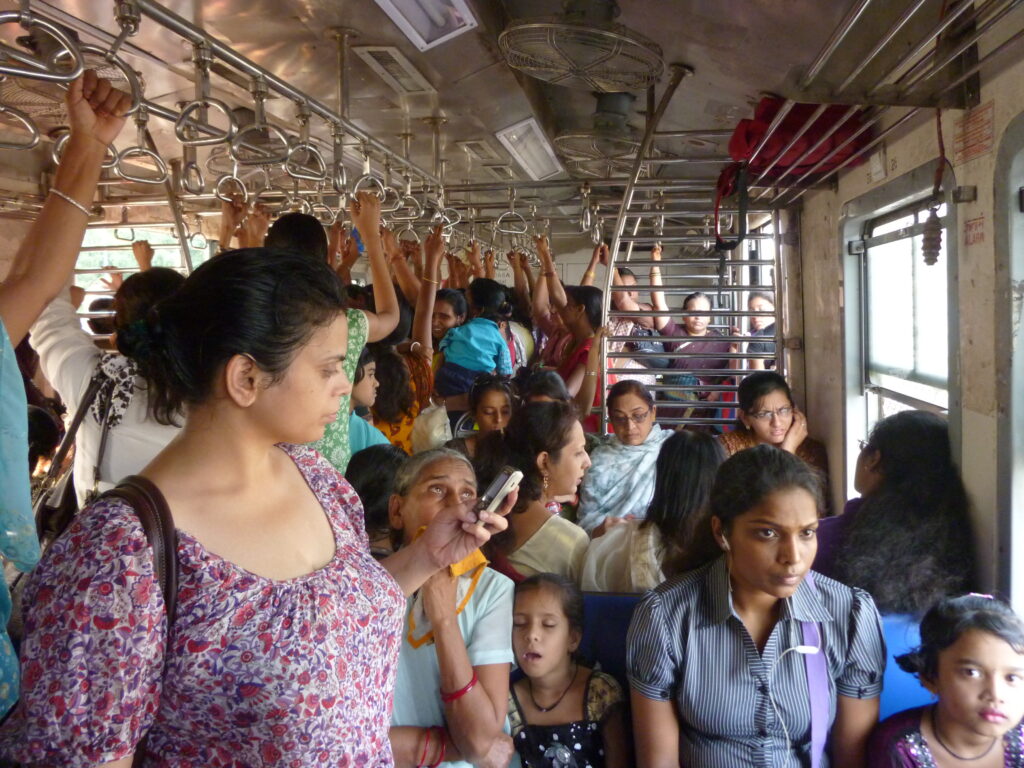Every morning, before the first rays of sunlight break through the grey sky, a quiet rhythm begins across India’s railway tracks. It’s not the sound of trains just yet—it’s the sound of footsteps, the rustle of sarees, the click of handbags, and the gentle hum of anticipation. Among the countless faces that board the early morning trains are women whose lives revolve around the railway line—not because they work for the railways, but because they live by them.
These are the women who travel for work every single day—teachers, nurses, clerks, office assistants, and saleswomen—each with her own story, yet all connected by the same tracks.
The Dawn Commute
At 6:30 a.m., the platform begins to stir. The air smells faintly of chai, diesel, and determination. Rina, a 38-year-old bank employee, stands near the women’s compartment door, her dupatta tucked neatly and her ID card swinging from her neck. “This train is like my second home,” she says with a smile. For the past ten years, she has taken the 6:45 from Virar to Churchgate. She knows every vendor, every ticket checker, and every regular passenger who shares her compartment.
Her journey, like many others, is not just about reaching the office. It’s about reclaiming a little piece of freedom—a space to breathe, talk, and laugh before the workday begins. The women’s compartment becomes a moving community where strangers turn into sisters, and morning greetings are exchanged with warmth even amidst the crowd.
Stories on the Tracks
Seema, a schoolteacher from Thane, uses her train time to check her students’ notebooks. “It’s the only time I get for myself,” she admits. The gentle rocking of the train often becomes her thinking space, where lesson plans and life plans intertwine.
Further down the compartment, Meena, who works in a garment store, sits by the window, her lunchbox on her lap. She spends nearly three hours commuting every day, yet her spirit remains unbroken. “The train gives me strength,” she says simply. “When I see other women working hard, I forget my own tiredness.”
For some, the journey is a quiet retreat—a rare hour away from household responsibilities. For others, it’s a place of friendship and shared struggles. Conversations flow easily here—about rising prices, children’s exams, health worries, and the latest serials. Amid the clatter of wheels and the occasional whistle, these women build a world of their own.
Challenges on the Way
Yet, it isn’t always easy. Crowded compartments, long waits, and unpredictable delays often test their patience. During monsoons, when the tracks flood and trains crawl, these women still show up—wet sarees, damp hair, yet unwavering resolve. “If I don’t go, my work suffers,” says Kavita, who works as a nurse. “And my patients wait for me.”
Safety is another concern. Many women prefer travelling together, forming small groups for support. The railway authorities have made efforts—ladies’ compartments, reserved seats, and RPF presence—but the sense of vulnerability never quite disappears.
Still, these women continue, day after day, not out of choice alone, but necessity—and courage.
The Evening Return
By the time the sun dips low, the same faces gather again on the platform—tired, but smiling. The evening train carries stories of the day—of completed files, finished lessons, successful sales, and small victories. The laughter returns, louder this time, mingling with the rhythmic click-clack of the tracks.
For many, this journey is not just a daily commute—it’s a lesson in resilience. It’s a reminder that no matter how long the road, women have a way of turning struggle into strength, and routine into ritual.
Beyond the Rails
A railway woman’s journey is not only about the distance between two stations—it’s about the distance she travels within herself. Every journey teaches her patience, endurance, and adaptability. Whether she’s a first-time commuter or a seasoned traveller, she carries within her the spirit of thousands of women who keep cities running, homes functioning, and dreams alive.
As the last train of the day pulls into the station, a tired woman steps down, adjusts her bag, and walks towards home under the flickering streetlight. Tomorrow, she’ll board the same train again—because life, like the railway, never stops moving.
Author’s Note
This piece is inspired by the countless women I’ve watched travelling by train—some balancing handbags and tiffin boxes, others clutching files, books, or just a cup of chai to keep themselves awake before dawn. I’ve often admired their quiet strength and wondered about their stories—their families waiting at home, their workplaces miles away, and the dreams they tuck safely into their hearts each day.
Writing “A Railway Woman’s Journey” reminded me that courage doesn’t always roar; sometimes, it simply boards a crowded train at sunrise and keeps going—day after day. To every woman who wakes before the world, catches the train, and carries on with grace—this story is for you.
Image Courtesy: https://benjamuna.com/wp-content/uploads/2010/11/colaba-market-and-borivali-062.jpg
If this story moved you, share your thoughts or stories from your own daily journey in the comments below.
– Dr. Arwa Saifi

About the Writer
Dr. Arwa Saifi is an acclaimed Career Writer with over 18 years of experience in the literary and education space. Honoured with an Honorary Doctorate in Literature, she is also an Amazon #1 Bestselling Author. Her career includes contributions to Education Times, a supplement of The Times of India, where she brought her expertise to one of the country’s leading newspapers.
Dr. Saifi has served as the editor of several prestigious school and college magazines in Mumbai, shaping young voices and nurturing a culture of expression. She is the author of 10 published books and has collaborated as a co-author in more than 40 anthologies. Her work reflects a deep commitment to storytelling, education, and empowering aspiring writers.



